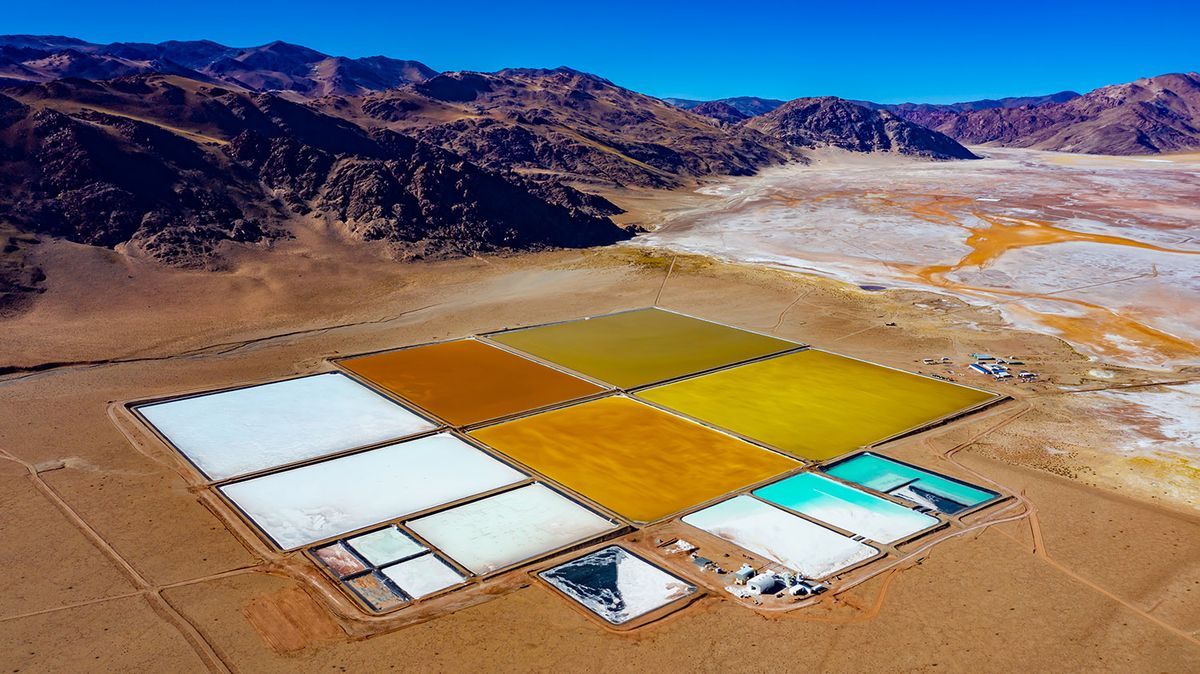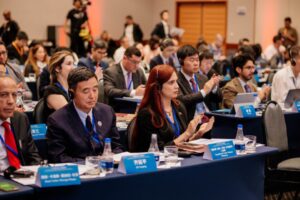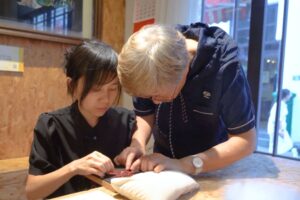
The Chinese group Hanaq has made significant progress in its Doncella lithium project, located in the Salar de Arizaro, in the province of Salta, Argentina. The company announced that it received the Environmental Impact Statement (DIA), a crucial step to begin construction of its pilot plant, which will have a production capacity of 3,000 tons of lithium carbonate per year. This project is presented as a pioneer in the use of Direct Lithium Extraction (EDL) technology, positioning Hanaq Group as a leader in the implementation of cutting-edge methods in the mining sector.
The Arizaro Salt Flat, where the initiative will be developed, is the largest salt flat in Argentina and one of the most promising in the world in terms of lithium extraction potential. The Doncella project is located at an altitude of 3,475 meters above sea level and covers a total of 33 exploration and exploitation concessions, representing an area of 62,507 hectares. The strategic location of this site, about 440 kilometers from the city of Salta and 75 kilometers west of the town of Tolar Grande, facilitates its access and future operation through provincial and national routes.
The Hanaq pilot plant will not only be the first in Argentina to use EDL technology, but also promises to redefine sustainability standards in lithium mining. This innovative technology allows up to 90% of the lithium available in the brine to be recovered, considerably reducing the environmental impact compared to traditional solar evaporation methods. While conventional techniques rely on large pools and consume large amounts of water, EDL uses advanced nanofiltration to maximize lithium purity and reduce water resource use. This approach allows for less brine pumping and a faster, more efficient production process, resulting in significant resource savings and minimizing environmental impact.
The company’s objective is to produce high-purity lithium carbonate, known as “Battery Grade”, with a lithium content greater than 99.6%, intended mainly for the manufacture of batteries for advanced technologies. This quality standard is essential to meet the demands of the global battery industry, where lithium has become a key component to drive the transition towards cleaner and more sustainable energy sources.
Four international companies lead lithium projects in Bolivia after YLB call
The development of Doncella not only focuses on production, but also on establishing a responsible and sustainable mining model. From Hanaq Group, they highlighted their commitment to practices that respect the natural environment and local communities. The company successfully completed the free, prior and informed consent process, as well as holding the Public Hearing in a nearby community, which was celebrated as a milestone of transparency and collaboration. “We are determined to build a mining model that is not only economically viable, but also contributes to local development and respects the environment,” the company stated.
The implementation of Direct Lithium Extraction technology in the Arizaro Salar represents a step forward in Hanaq’s promise to establish sustainable mining in the Andes. The use of this innovative method could transform the way lithium is extracted in Argentina and position the country as a key player in the global industry of this mineral, essential for the development of rechargeable batteries and, therefore, for the rise of vehicles. electrical and energy storage systems.
Argentina, along with Bolivia and Chile, is part of the well-known “Lithium Triangle”, a region that concentrates the largest reserves of this mineral in the world. In this context, the approval of the Environmental Impact Statement for the Doncella project reinforces the country’s position as an attractive destination for investments in sustainable mining. The success of this project could attract even more international interest and consolidate Argentina as a leader in lithium production with low environmental impact technologies.
As the world moves toward a clean energy economy, demand for lithium continues to rise. However, traditional extraction methods have been criticized for their high water consumption and negative effects on the local ecosystem. The EDL emerges as a more sustainable and efficient alternative, capable of meeting the growing needs of the global market without compromising natural resources. The Hanaq project in the Salar de Arizaro not only stands out for its technological capacity, but also for its potential to become a model of green mining in the 21st century.
Source: https://reporteasia.com/especiales/litio/2024/09/30/hanaq-group-argentina-proyecto-litio

